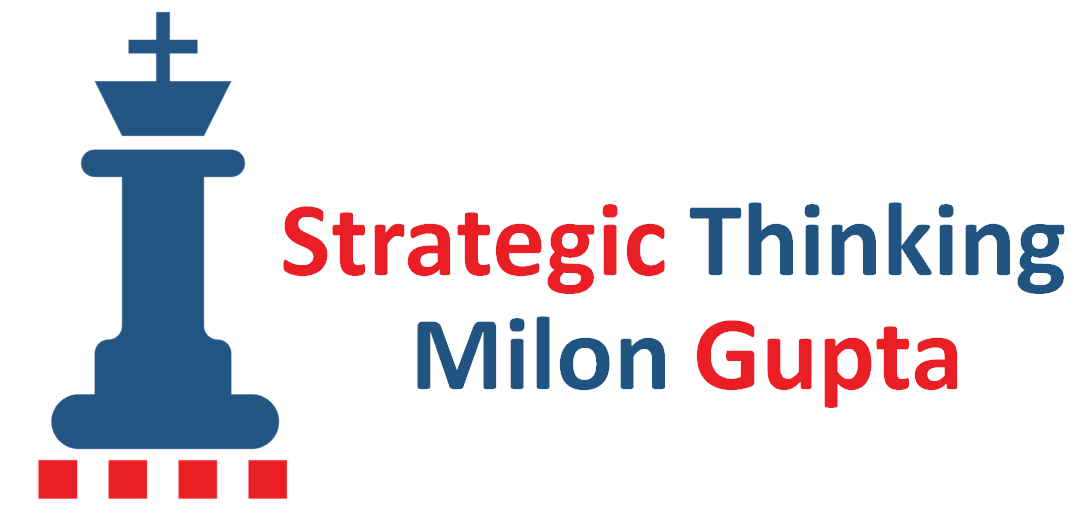
Thomas Anton Schuster is the owner of a forwarding agency in the greater Munich area. In addition, he has been investing in stocks for more than three decades and is sharing now his investment knowledge as a speaker.
In an interview with Milon Gupta he explains exclusively to readers of the Strategic Thinking Blog, what typical mistakes make individuals and businesses commit when they invest and how to invest with strategic vision.
What investment options are generally available to investors?
Schuster: There are basically two options: either to lend your money or to build property in the form of tangible assets.
I decided from the beginning for the development of property. I consider this the much more profitable way, especially in the current low-interest phase; because even if you lend your money to the state for a period of 10 years, the return is currently around zero. This makes no sense in my opinion. By the way, what many people do not know: even if you deposit your money in a checking account at the bank, you lend your money to the bank. And you don’t get hardly any positive interest rates as well. Some banks have even moved to negative interest rates for larger amounts. This means that you must even pay money to lend it to the bank. I find that quite remarkable.
On the other hand, the annual dividend return of DAX shares alone is at about 3 percent; thus, much more than fixed-income investments.
In building wealth based on real assets, there are generally the following opportunities: shares, meaning: investments in businesses, real estate, precious metals such as gold or silver, and commodities like oil or copper.
With shares I have had the best experiences; because you get ongoing returns in the form of dividends.
What is the meaning of strategic investing for you?

Schuster: In my stock strategy, strategic investing really means long-term investing. No gambling! I invest exclusively in companies I believe in and stick to them – preferably for life. If the stock prices of these companies temporarily decline, I specifically average down on these stocks. Averaging down at good prices propels my returns. That allows me to achieve a long-term annual return of 8 to 10 percent.
Why have you focused your investment strategy on shares?
Schuster: Because I was able to already invest relatively small amounts in my youth. In addition, I can very well spread with shares, which means dividing my money among several companies, so that I get a spread of risk, if one of my investments should turn out to be a mistake.
Furthermore, I can benefit from global economic growth by investing in global companies.
What are the most common strategic mistakes in investing, and how can you avoid them?

Schuster: In long-term investing, there is of course always the problem that no one can predict the future for several years or even decades. You can reduce this risk by spreading the funds, which means investing in several stock market values; in my experience it is best to pick 10 to 15 global companies. Thus, I have always been able to compensate for bad investments and yet achieve annual returns of 8 to 10 percent in the long term.
What advice do you have for the strategic, far-sighted build-up of an investment portfolio?
Schuster: Invest in 10 to 15 solid global companies, and average down when stock setbacks happen. The problem is your own psyche: many lose their nerves and sell at very low rates during economic slumps. Thus, losses are inevitable of course. I recommend the opposite: to buy when everyone else sells; and not to allow being driven crazy by doomsday prophets. By now, I have experienced all the highs and lows at the stock exchange for over 30 years now and gained the following insight: at some point, every crisis is over. And then, stock prices of solid companies will increase again and reach new peak values.
And finally: what investment advice would you give medium-sized enterprises?
Schuster: My tip for medium-sized entrepreneurs: diversify your investments!
I am myself managing partner in a medium-sized forwarding agency. Therefore, I know: many medium-sized companies put all their money in their own company. That makes perfect sense, because we identify with our company. The company is a big part of our lives. The risk here, however, is the formation of lumps. What I mean by this is the investment of a large part of our assets in only one investment object. However, nobody can predict the future here as well. How many successful industries have become obsolete because of digitization, for example, or have changed completely; or through political decisions?
With stocks, you have the opportunity to invest a part of your assets in completely different industries and to diversify the investment risk.
Further information about Thomas Anton Schuster is available on his website at www.aktienerfahren.de (in German)
